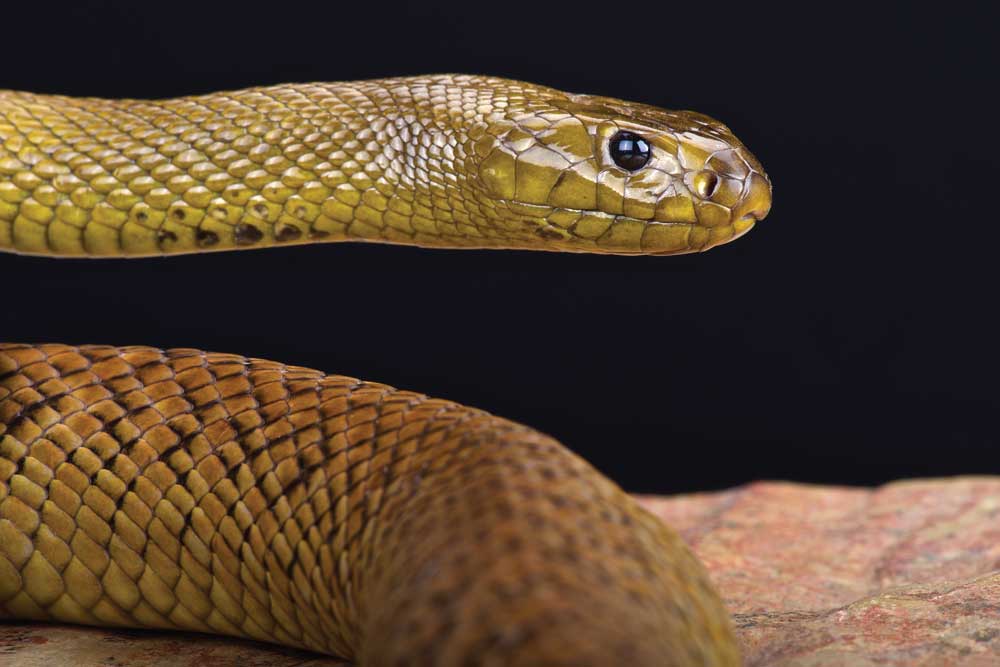Introduction
When it pertains to venomous serpents, Australia is home to some of the most remarkable and harmful species worldwide. Among these, the Tiger Snake sticks out not only for its powerful poison but likewise for its appealing actions. Comprehending the habits of venomous serpents like the Tiger Snake is vital for both wild animals lovers and those living in areas where these snakes exist. This write-up delves into different elements of Tiger Serpent behavior, habitat, recognition, precaution, and Educating about venomous snakes first aid techniques in case of a serpent bite.
Understanding the Habits of Venomous Snakes Like the Tiger Snake
The Tiger Snake, scientifically referred to as Notechis scutatus, is infamous for its aggressive nature when endangered. These serpents display a range of behaviors that can be rather different from their non-venomous equivalents.
Characteristics of Tiger Snakes
The Tiger Snake is easily identifiable as a result of its distinct bands or stripes that look like a tiger's markings. They can differ in color from yellowish-brown to dark olive or black. This pigmentation offers not only as camouflage but additionally as a warning signal to possible predators.
Adaptability to Environment
One remarkable aspect of their behavior is their versatility to different environments. Found largely in seaside regions, marshes, and marshes throughout Australia and Tasmania, they can prosper in diverse habitats including city locations.

Hunting Techniques
Tiger Serpents are ambush killers largely preying on fish, frogs, and little creatures. They possess eager vision and an intense feeling of odor which aids them in finding target effectively.
Venom Composition
Their venom includes neurotoxins that affect the nerve system, leading to paralysis or death in smaller pets. For humans, instant clinical attention is crucial after a tiger serpent bite because of its potentially dangerous effects.
Natural Environment of Tiger Snakes
Preferred Locations
Understanding where these serpents live sheds light on their behavior patterns. The tiger snake habitat consists of:
- Coastal regions Swamps Grasslands Urban areas with bountiful water sources
Seasonal Movements
During warmer months, Tiger Snakes are a lot more energetic as they indulge in sunlight or hunt for food. In contrast, cooler months see them pulling back into hibernation sites.
Are Tiger Snakes Venomous?
Yes! The question "are tiger snakes poisonous?" typically arises among those unfamiliar with this varieties. Their venom is thought about among the deadliest amongst all snake species worldwide.

Symptoms of a Tiger Serpent Bite
If bitten by a tiger different types of snakes snake, symptoms might consist of:

- Localized pain Swelling at the bite site Nausea and vomiting Sweating and confusion
Immediate clinical assistance is critical as neglected bites can result in severe wellness issues and even death.
First Aid for Serpent Bites: Quick Response Guide
Knowing how to provide first aid for a snake bite can conserve someone's life. Right here's what you should do:
Step 1: Stay Calm
Keeping calm aids reduce heart price which minimizes poison spread.
Step 2: Incapacitate the Affected Area
Keep the impacted arm or leg still and below heart level if possible.
Step 3: Call Emergency Situation Services
Always look for expert medical assistance right away after a serpent bite.
First Aid for Serpent Bite Set Essentials
A well-equipped snake bite emergency treatment kit should include:
- A compression bandage Antiseptic wipes A pair of scissors An ice bag
Safety Precautions: Avoiding Serpent Bites in Australia
Awareness Programs
Educating areas about neighborhood serpent varieties and their behaviors can significantly minimize experiences resulting in bites.
Avoiding Unsafe Areas
Staying away from long turf throughout warmer months decreases call with snakes that might be resting or hunting.
Common False impressions Concerning Tiger Snakes
Many individuals think misunderstandings concerning the actions of tiger serpents bring about unnecessary anxiety. Here are some information:
Myth 1: All Tigers Are Aggressive
Not all tiger serpents will certainly display hostility if left undisturbed; lots of favor running away instead of confrontation.
Myth 2: They Chase Humans
Tiger snakes do not actively go after people; they may strike when they really feel threatened but will normally retreat if provided space.
Conservation Efforts Related to Venomous Snakes
Conservation efforts focus on enlightening communities concerning securing local wildlife while decreasing human-snake interactions.
Importance of Ecosystems
Understanding that venomous snakes play an essential duty in preserving environmental balance helps foster gratitude as opposed to fear in the direction of them.
FAQs Regarding Tiger Snakes
What needs to I do if I run into a tiger snake?- Maintain range and slowly back away without abrupt movements.
- While attacks aren't exceptionally common as a result of recognition efforts, they still take place every year within Australia.
- Baby tiger serpents can supply full dosages of poison in spite of being smaller sized; therefore care is suggested around them.
- They largely consume frogs, fish, little creatures like rats, and other reptiles.
- It's illegal in a lot of territories without correct licensing because of security worries concerning their venom.
- Wear strong boots and remain on marked trails; appearance prior to placing hands or feet into hidden areas like rocks or logs.
Conclusion
Understanding the behavior of venomous snakes like the Tiger Snake not just boosts our understanding yet additionally advertises security awareness among those living near their habitats. From recognizing their features, comprehending first aid protocols following a bite, through engaging conservation efforts-- every facet plays a crucial function in fostering Click for more conjunction with these fascinating reptiles while valuing their area within our ecosystem.
As we deepen our understanding through education and experience, we contribute favorably towards guaranteeing both human safety and wildlife conservation-- benefitting all celebrations involved!